A standard homeowners insurance policy provides a baseline level of protection for your home and personal belongings. However, every homeowner has unique needs, and certain situations may require additional coverage. Homeowners insurance endorsements, also known as riders or add-ons, allow you to customize your policy to ensure you’re adequately protected.
In this guide, we’ll explore various types of endorsements and how they can enhance your homeowners insurance policy.
Table of contents
Scheduled Personal Property Endorsement
A scheduled personal property endorsement is a valuable addition to a standard homeowners insurance policy. It provides additional coverage for high-value items that may not be fully protected under the standard policy. With this endorsement, you can increase the coverage limits on specific items, ensuring they’re adequately protected in the event of theft, damage, or loss.
The endorsement works by creating a detailed inventory of the items you want to protect and assigning a specific value to each one. This inventory is then attached to your insurance policy as a separate document. In the event of a claim, you can use this document to demonstrate the value of the items and receive appropriate compensation.
The benefit of a scheduled personal property endorsement is that it provides broader coverage for valuable items than what is typically included in a standard homeowners policy. For example, a standard policy may only provide up to $1,500 in coverage for jewelry, while a scheduled personal property endorsement can provide coverage up to the appraised value of the item.
It’s important to note that the cost of a scheduled personal property endorsement will depend on the value and number of items you want to insure. However, the cost is often worth it, as it can provide peace of mind and protect your investment in high-value items.
When considering a scheduled personal property endorsement, it’s important to work with your insurance agent to ensure that you understand the coverage limits and any restrictions or exclusions. Additionally, be sure to update your inventory regularly to reflect any changes in the value or ownership of the items you want to protect.
Sewer Backup and Water Damage Endorsement
Sewer backups and water damage caused by sump pump failures are common occurrences that can result in significant damage to your home and personal property. Unfortunately, most standard homeowners insurance policies do not provide coverage for these types of events. That’s why it’s important to consider adding a sewer backup and water damage endorsement to your policy.
A sewer backup and water damage endorsement can provide coverage for the cost of repairs or replacement of damaged property, as well as any cleanup costs associated with the event. This can include damage to your floors, walls, and ceilings, as well as any personal property that may have been affected by the water.
It’s important to note that not all sewer backups or sump pump failures are covered under this endorsement. In some cases, the damage may be caused by a municipal sewer system or a malfunctioning sump pump that is not covered by your policy. Be sure to review the specific terms and conditions of your endorsement to ensure that you understand the extent of your coverage.
Adding a sewer backup and water damage endorsement to your homeowners insurance policy can provide additional peace of mind and protection for your home and personal property.
Flood Insurance Endorsement
Floods can cause significant damage to your home and personal property, and unfortunately, standard homeowners insurance policies do not cover flood damage. That’s where a flood insurance endorsement or a separate flood insurance policy through the National Flood Insurance Program (NFIP) comes into play.
A flood insurance endorsement is an addition to your existing homeowners insurance policy that provides coverage for flood damage caused by natural disasters such as heavy rain, snowmelt, and hurricanes. This endorsement may also cover damage caused by water from a river or other body of water, groundwater, or mudslides.
It’s important to note that even if you live in an area that is not typically prone to floods, you may still be at risk. In fact, about 20% of flood insurance claims come from homeowners in moderate- to low-risk areas. That’s why it’s important to consider adding a flood insurance endorsement to your policy, especially if you live in a flood-prone area.
A separate flood insurance policy through the NFIP is also an option for homeowners in flood-prone areas. The NFIP is a federal program that provides flood insurance coverage to homeowners, renters, and business owners in participating communities.
When considering a flood insurance endorsement or a separate policy through the NFIP, it’s important to note that there is typically a 30-day waiting period before coverage begins. This means that you cannot purchase flood insurance right before a major storm or flood event and expect to be covered. It’s important to plan ahead and purchase flood insurance well in advance of any potential flood events.
In conclusion, a flood insurance endorsement or a separate flood insurance policy through the NFIP can provide crucial protection for homeowners in flood-prone areas. Make sure to review your policy and consider adding this endorsement or policy to ensure that you’re adequately protected from flood-related damage.
Earthquake Endorsement
An earthquake endorsement is an add-on to your standard homeowners insurance policy that provides coverage for damage caused by earthquakes. Standard policies do not cover damage caused by earthquakes, and without this endorsement, you may be responsible for paying for repairs or replacement costs out of pocket.
Earthquakes can cause significant damage to your home and personal property, including cracked foundations, damaged walls and roofs, and broken glass. An earthquake endorsement can help cover the cost of repairing or replacing these items. It can also provide coverage for additional living expenses if your home becomes uninhabitable due to earthquake damage.
It’s important to note that earthquake endorsements vary in their coverage limits and deductibles, so it’s essential to carefully review the terms and conditions of any endorsement you’re considering. Additionally, earthquake insurance may not be necessary for those who live in areas with low seismic activity.
Home Business Endorsement
A home business endorsement is an important consideration for those who operate a business from their home. Many standard homeowners policies do not provide sufficient coverage for business equipment, inventory, or liability risks associated with home-based businesses. This endorsement can provide additional protection for these types of losses.
The coverage offered by a home business endorsement can vary depending on the insurance company and the specifics of the business. Generally, this type of endorsement provides coverage for business equipment, such as computers, printers, and other office supplies, as well as business inventory. It may also provide coverage for business liability risks, such as if a client is injured on your property or if your product causes harm to a customer.
It’s important to note that a home business endorsement may have limitations on coverage amounts, and additional coverage may be necessary depending on the nature and size of the business. An insurance agent can help you determine the appropriate coverage for your home-based business.
When considering a home business endorsement, be sure to review the policy’s terms and conditions carefully to understand what is and isn’t covered. Keep in mind that you may need to provide documentation of your business operations and revenue to obtain this type of coverage.
Overall, a home business endorsement can provide valuable protection for those who operate a business from their home, ensuring that both personal and business assets are properly covered in the event of a loss.
Identity Theft Endorsement
Identity theft is a serious issue that can cause significant financial and emotional distress. Hackers and fraudsters use various tactics to steal personal information and commit identity theft. The consequences of identity theft can range from unauthorized credit card charges to fraudulent loans taken out in your name. An identity theft endorsement is an add-on to your homeowners insurance policy that provides coverage for expenses related to identity theft recovery.
With an identity theft endorsement, you can get reimbursed for expenses such as legal fees, notary and certified mailing fees, and lost wages related to resolving the identity theft. Some policies may also cover the cost of credit monitoring services to help you detect any suspicious activity on your accounts.
It’s important to note that an identity theft endorsement typically does not cover the actual financial losses resulting from identity theft, such as stolen funds or fraudulent charges. However, it can provide valuable assistance and support during the recovery process.
It’s essential to review the specifics of your identity theft endorsement carefully, as coverage can vary by policy. Some policies may offer additional services, such as identity theft resolution support, which can help guide you through the process of recovering from identity theft.
Overall, an identity theft endorsement can be a valuable addition to your homeowners insurance policy, helping you protect your financial well-being and providing peace of mind.
Extended Replacement Cost Endorsement
An extended replacement cost endorsement is an optional coverage that provides additional protection for your home in the event of a total loss. With a standard homeowners policy, the coverage is typically limited to the dwelling coverage limit listed in the policy. However, construction costs can rise over time, especially after a catastrophic event like a natural disaster, leading to inadequate coverage.
With an extended replacement cost endorsement, you can increase your coverage limit to ensure you have enough coverage to rebuild your home even if construction costs have increased. This endorsement typically provides a percentage above your dwelling coverage limit, such as 25% or 50%.
It’s important to note that an extended replacement cost endorsement does not cover any upgrades or improvements you made to your home since the policy was initially issued. For these changes, you’ll need to update your policy or add an endorsement to ensure they’re covered.
Before adding an extended replacement cost endorsement, it’s essential to carefully review your policy and determine if this additional coverage is necessary for your specific situation. In some cases, the added cost may not be worth the increased coverage, especially if you have a newer home or the construction costs in your area are stable. However, for homeowners in areas prone to natural disasters or with older homes, an extended replacement cost endorsement can provide valuable peace of mind.
Wrapping Up
In conclusion, insurance endorsements offer homeowners the flexibility to tailor their insurance policies to meet their specific needs and mitigate various risks effectively. By understanding the different types of endorsements available and how they can enhance coverage, homeowners can make informed decisions to safeguard their homes and belongings.
Remember to regularly review your policy, assess your evolving needs, and consult with your insurance agent to ensure that you have the appropriate endorsements in place. With the right endorsements, you can enjoy peace of mind knowing that you’re adequately protected against unexpected events and losses.
FAQ
Insurance endorsements, also known as riders or add-ons, are additional coverages that homeowners can add to their standard insurance policies to customize coverage according to their unique needs.
A scheduled personal property endorsement provides additional coverage for high-value items, ensuring they’re adequately protected in the event of theft, damage, or loss.
Standard homeowners insurance policies typically do not cover sewer backups and water damage caused by sump pump failures. However, homeowners can add a sewer backup and water damage endorsement to their policy for additional protection.
A flood insurance endorsement is an addition to a homeowners insurance policy that provides coverage for flood damage caused by natural disasters such as heavy rain, snowmelt, and hurricanes.
An earthquake endorsement is an add-on to a standard homeowners insurance policy that provides coverage for damage caused by earthquakes, which are not covered under standard policies.
A home business endorsement provides additional coverage for business equipment, inventory, and liability risks associated with operating a business from home.
An identity theft endorsement provides coverage for expenses related to identity theft recovery, such as legal fees, notary fees, and lost wages.
An extended replacement cost endorsement increases the coverage limit for rebuilding a home in the event of a total loss, ensuring homeowners have adequate coverage even if construction costs have risen.
Homeowners can add endorsements to their insurance policies by discussing their specific needs and concerns with their insurance agent, who can recommend suitable endorsements based on their circumstances.
The necessity of insurance endorsements depends on individual circumstances, risk factors, and coverage needs. Homeowners should assess their situation and consult with their insurance agent to determine the most appropriate endorsements for their policy.




